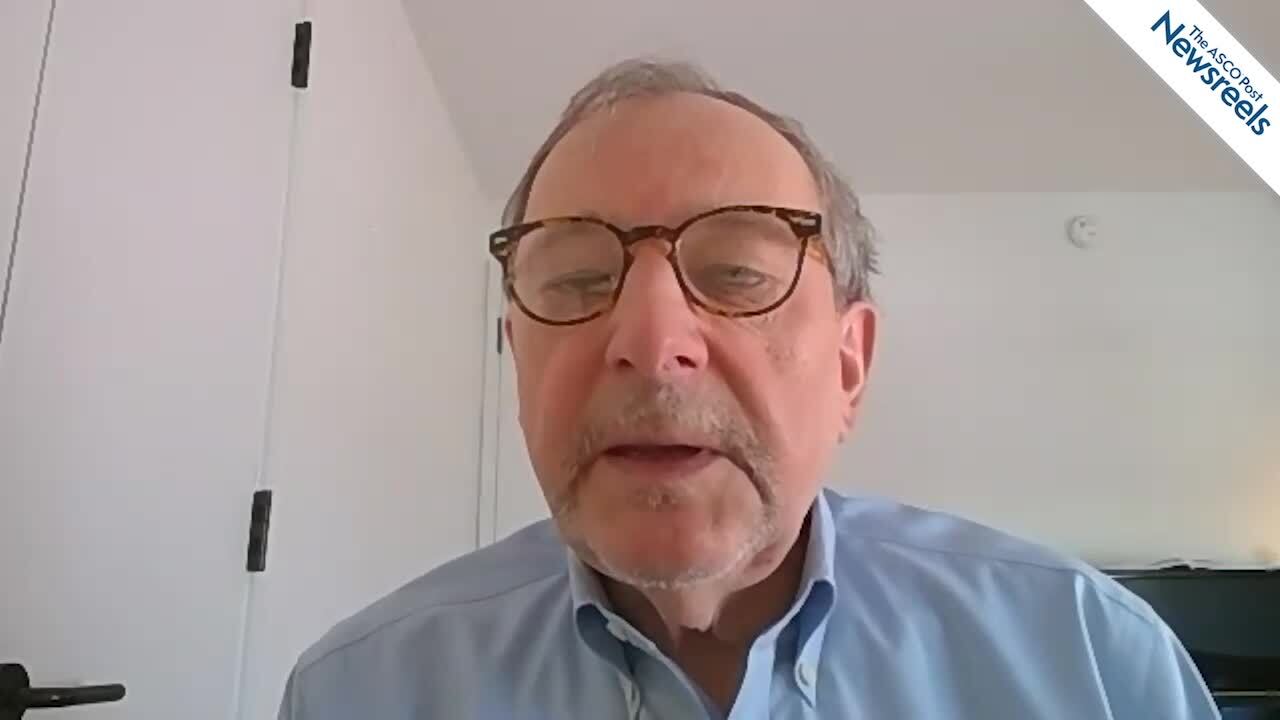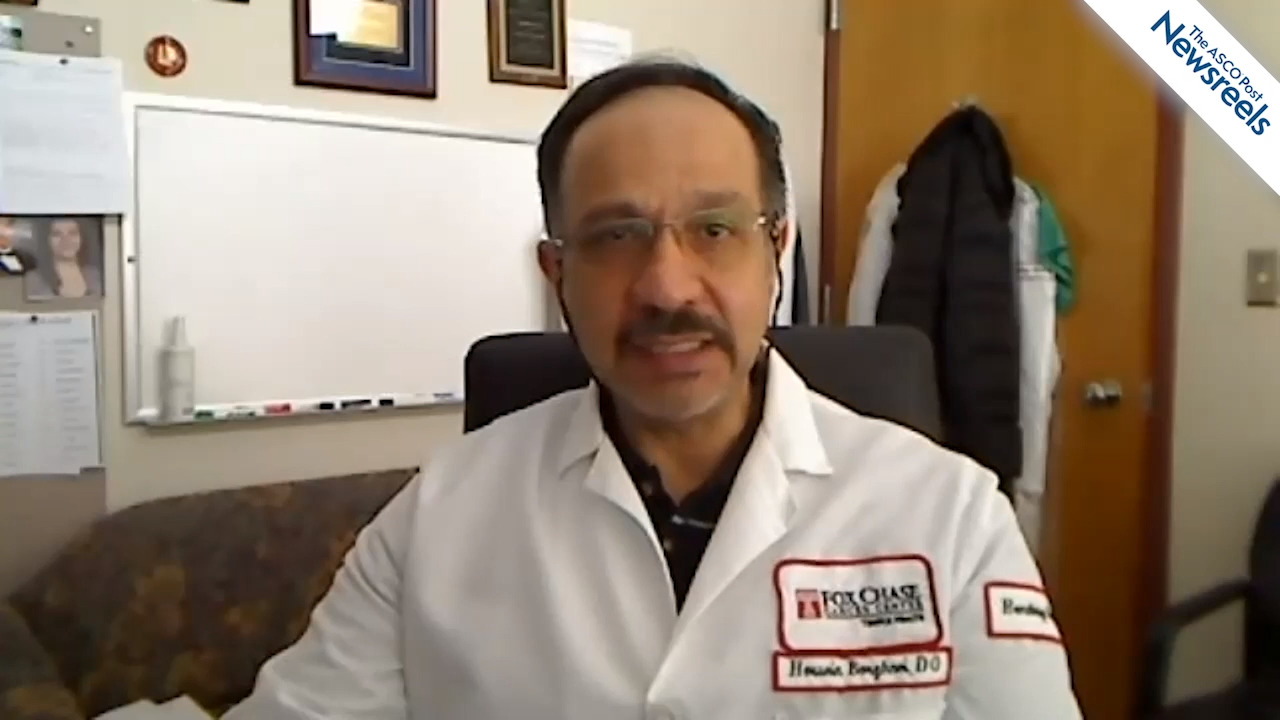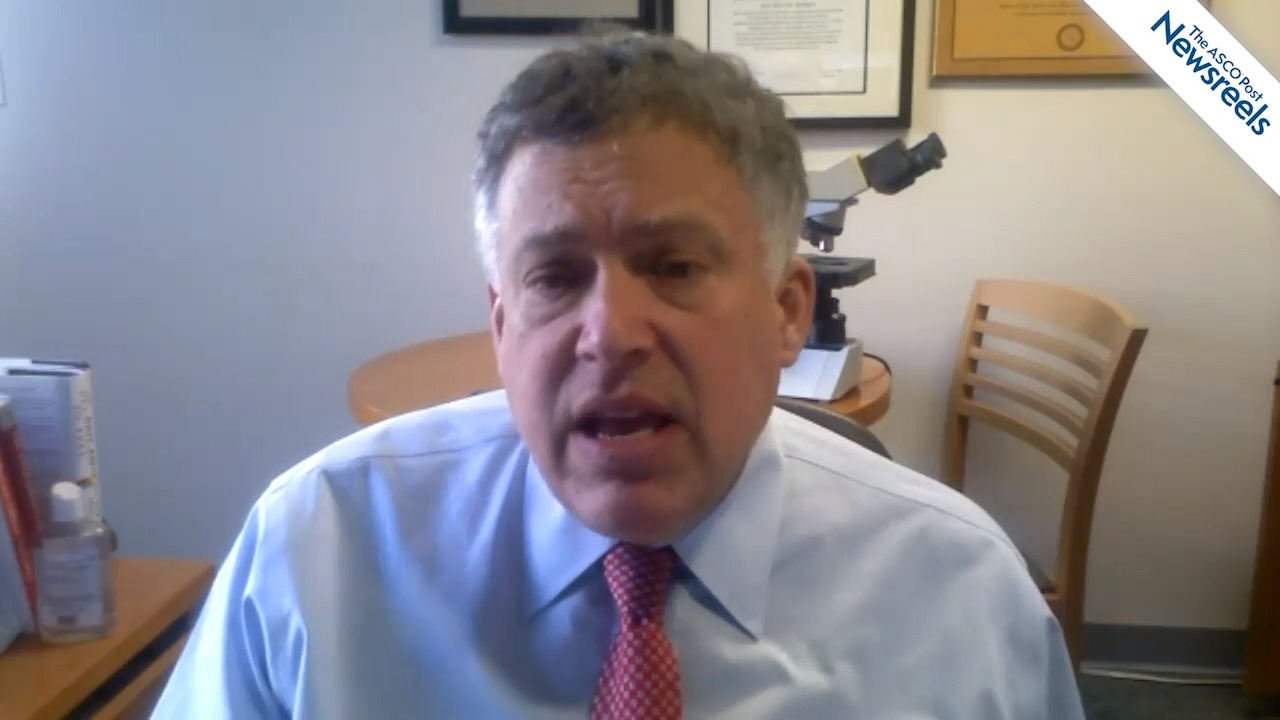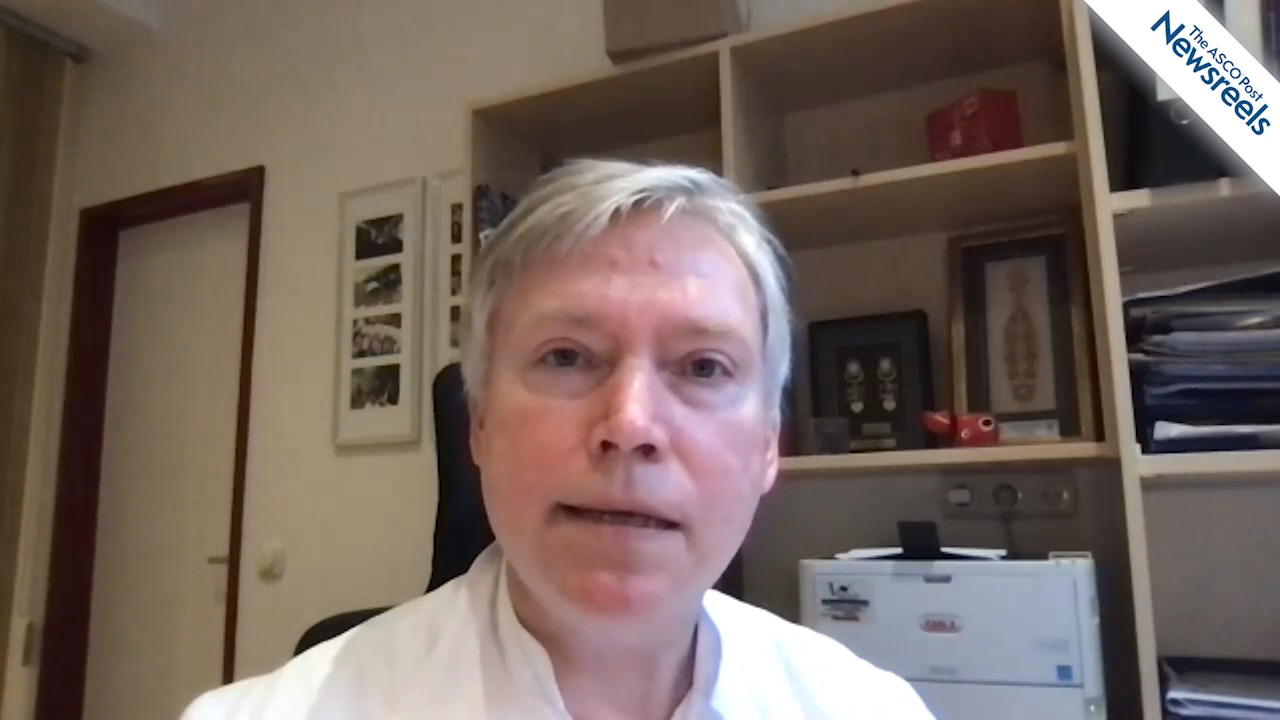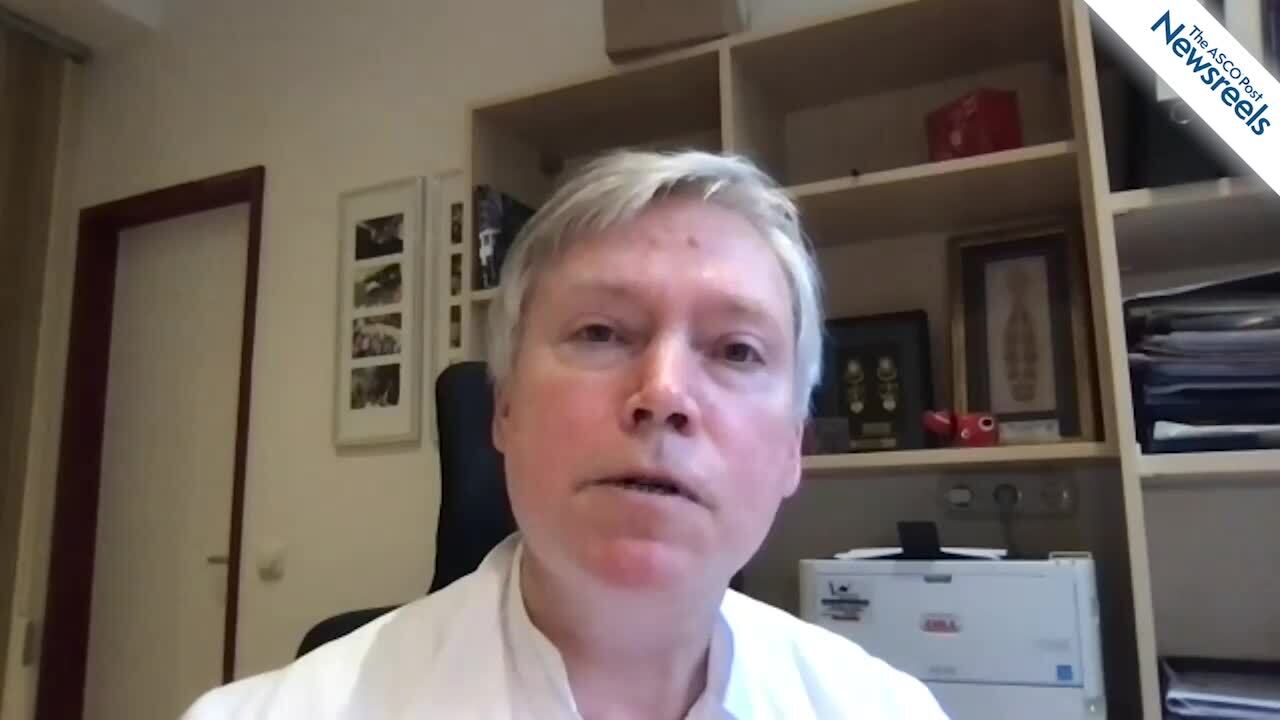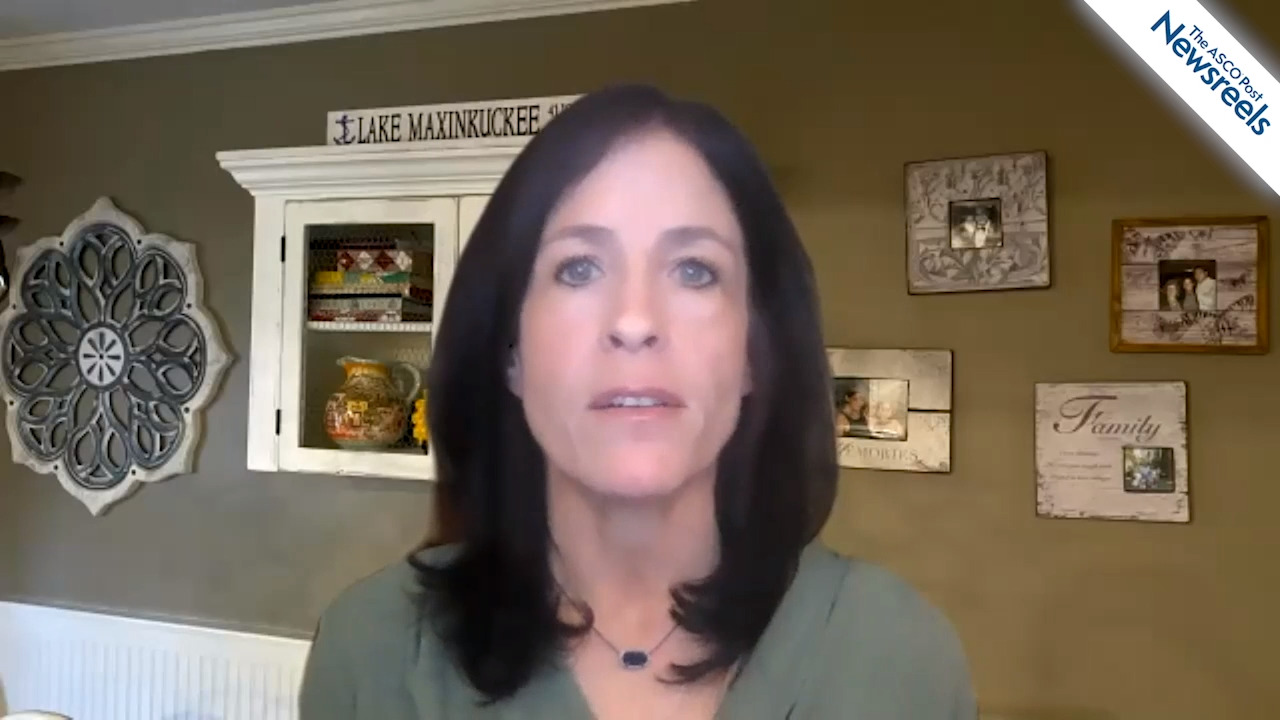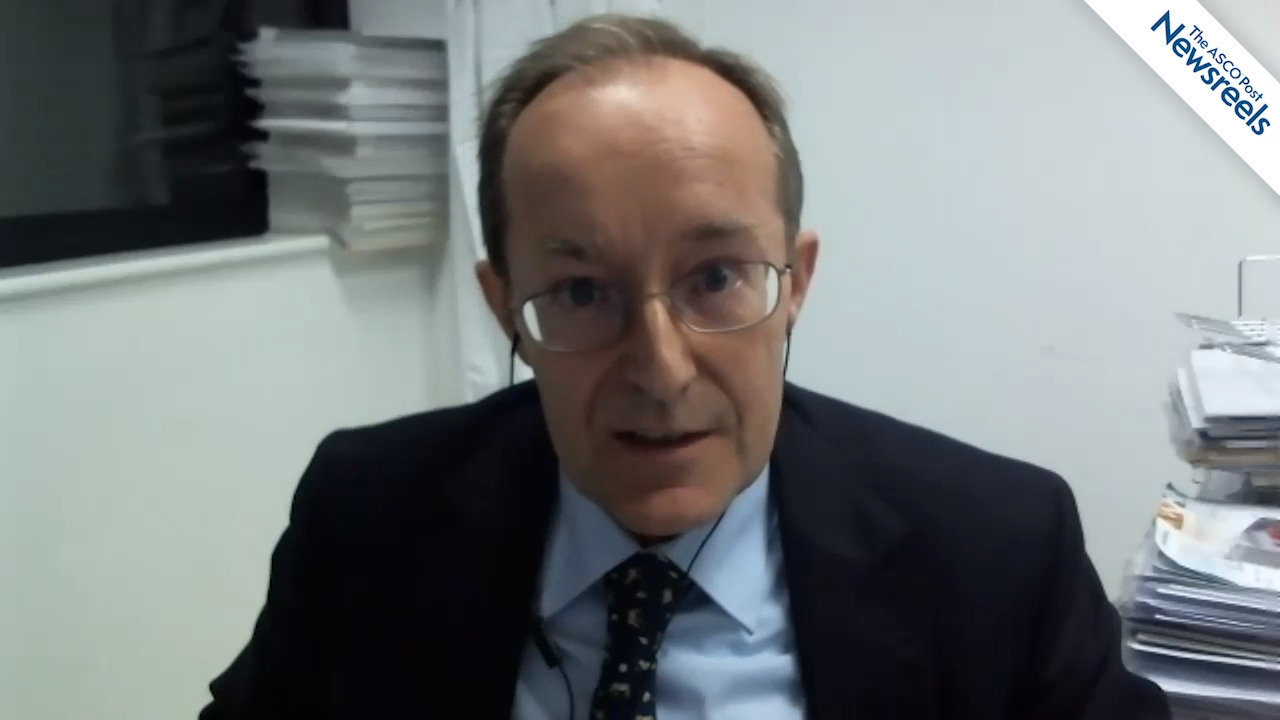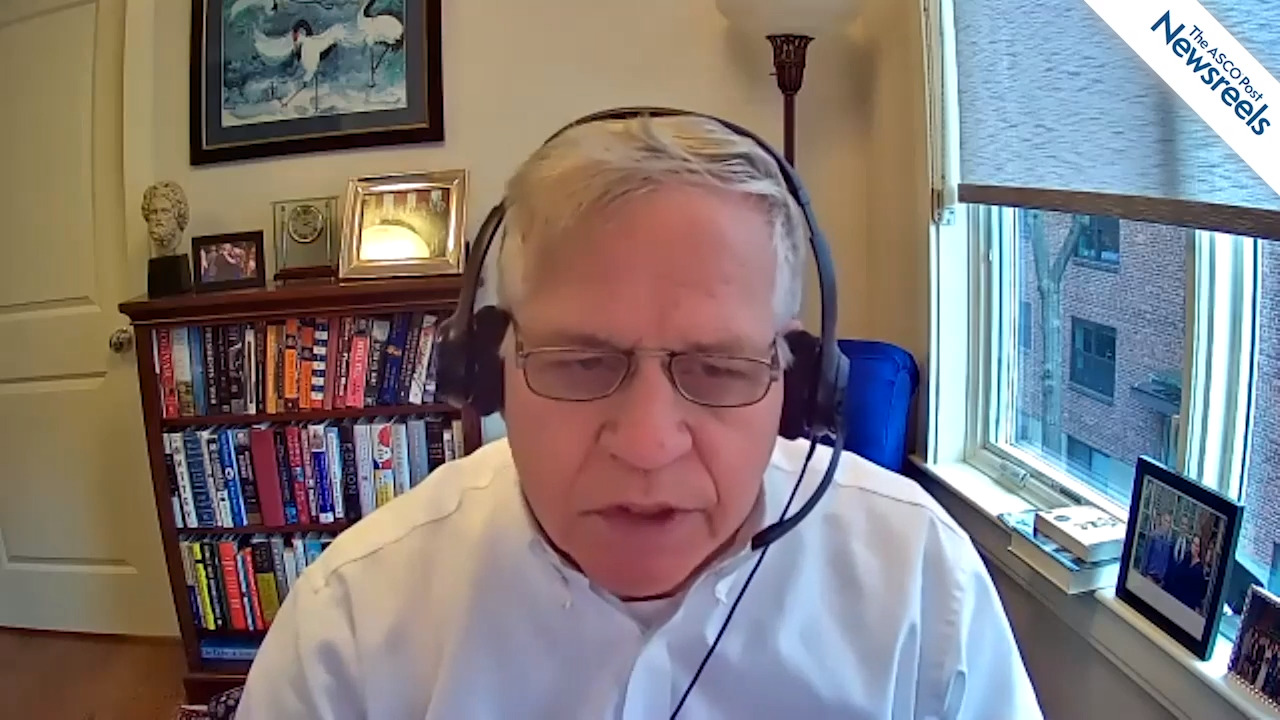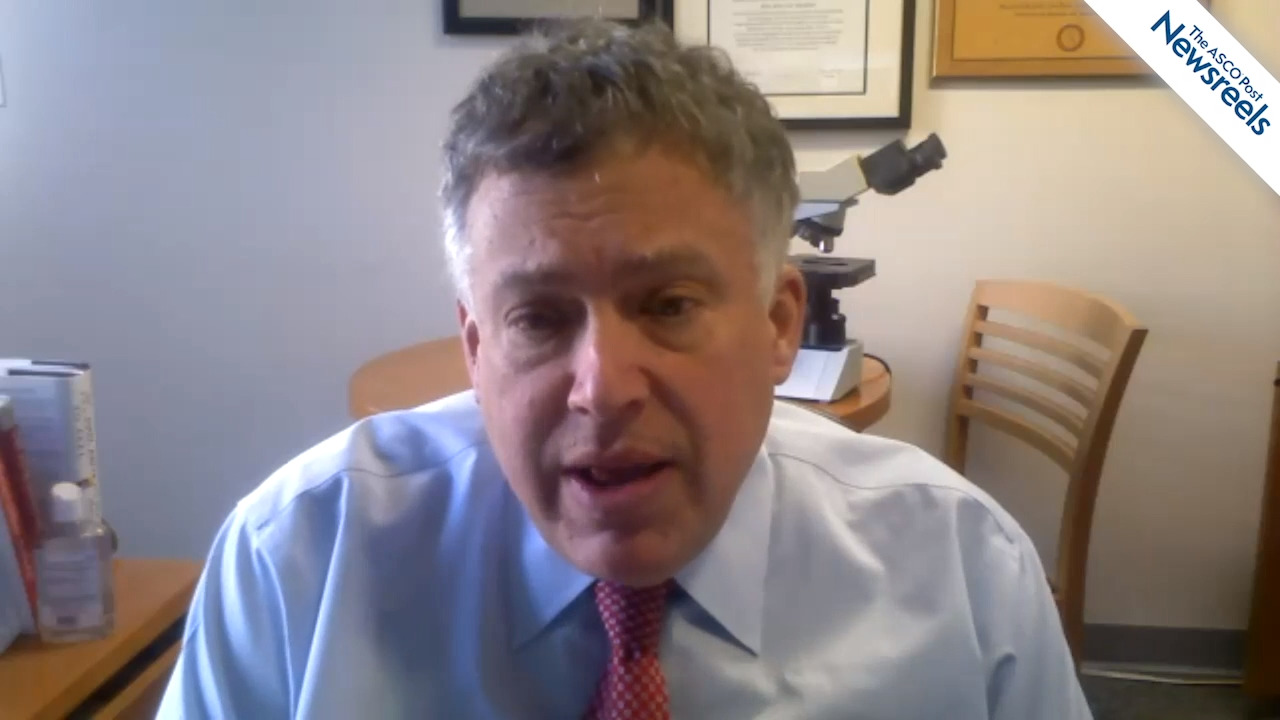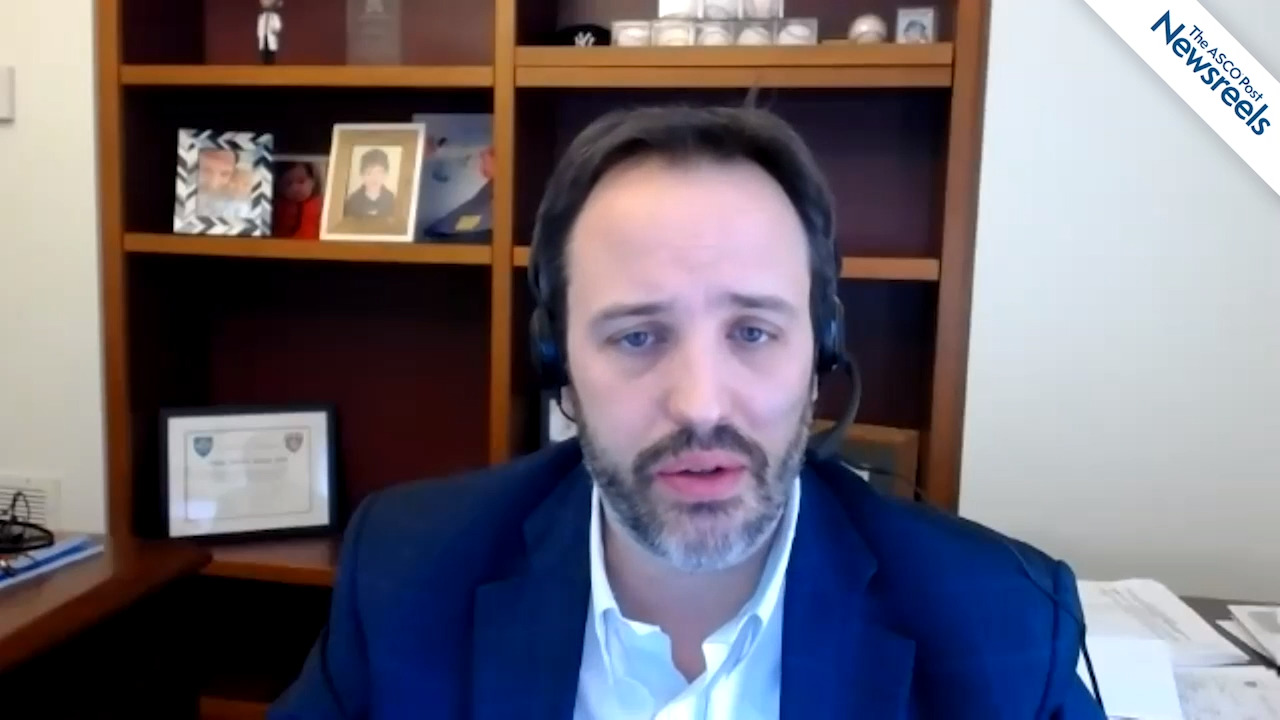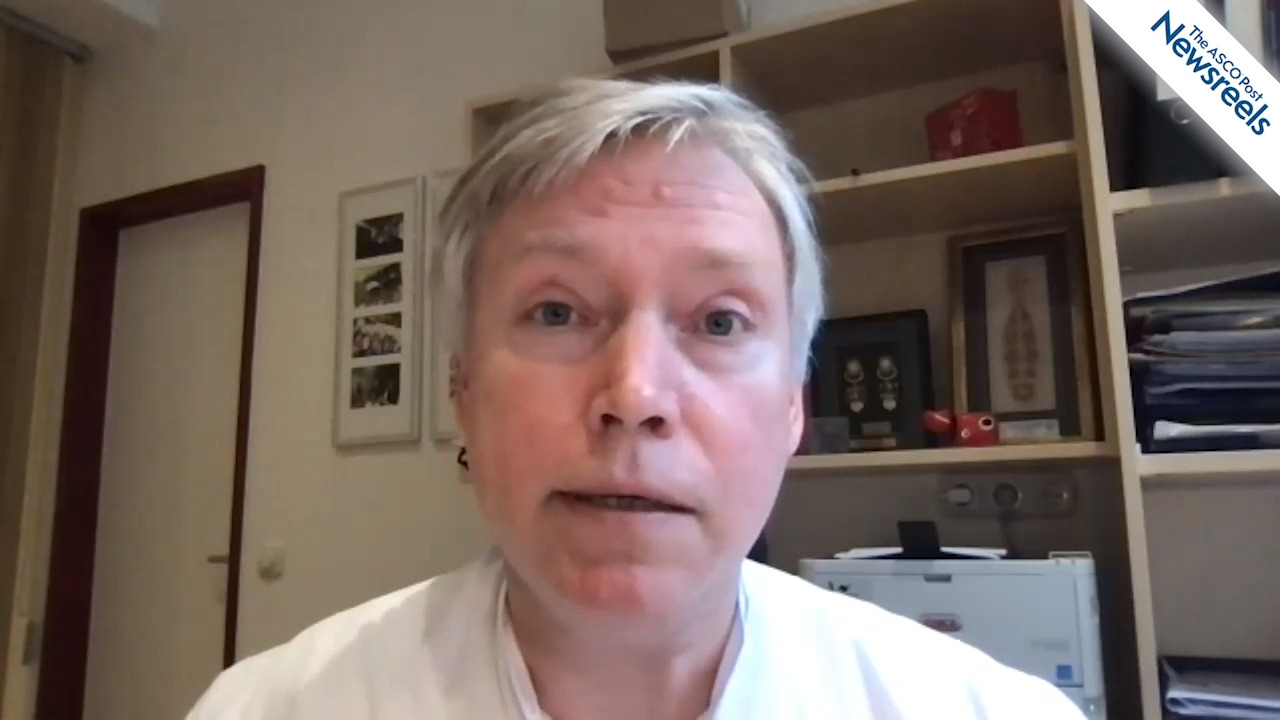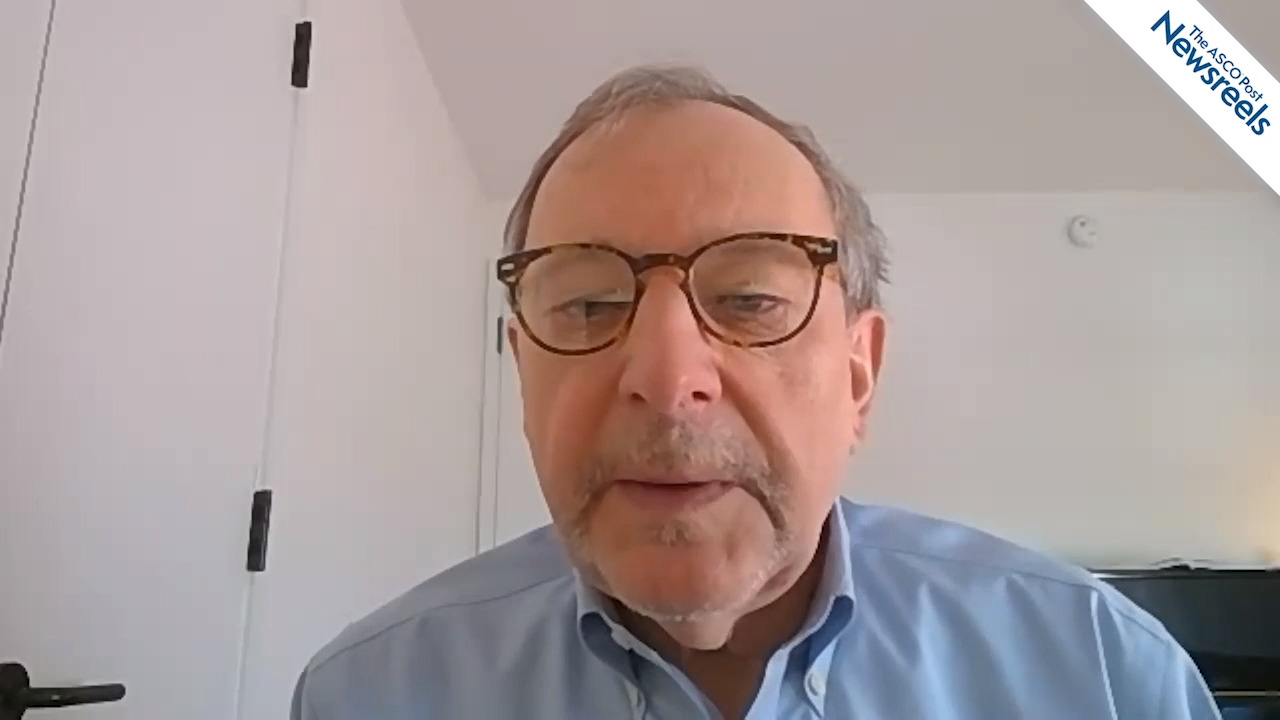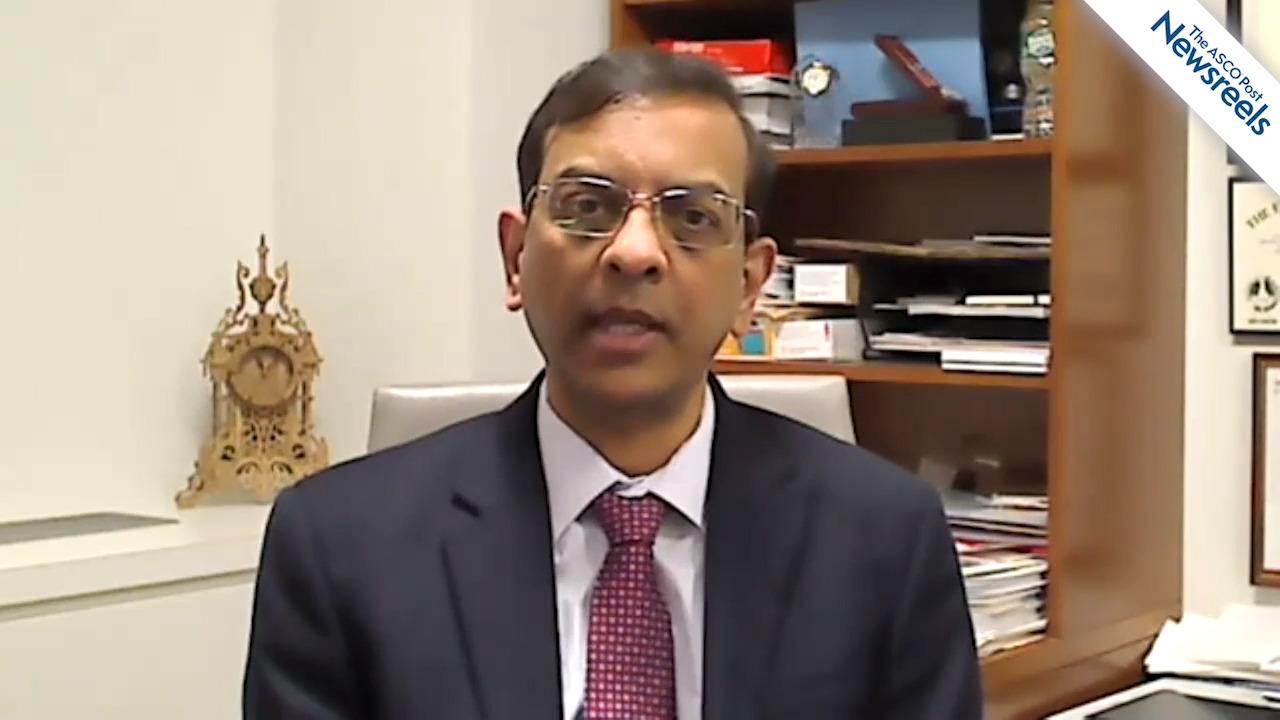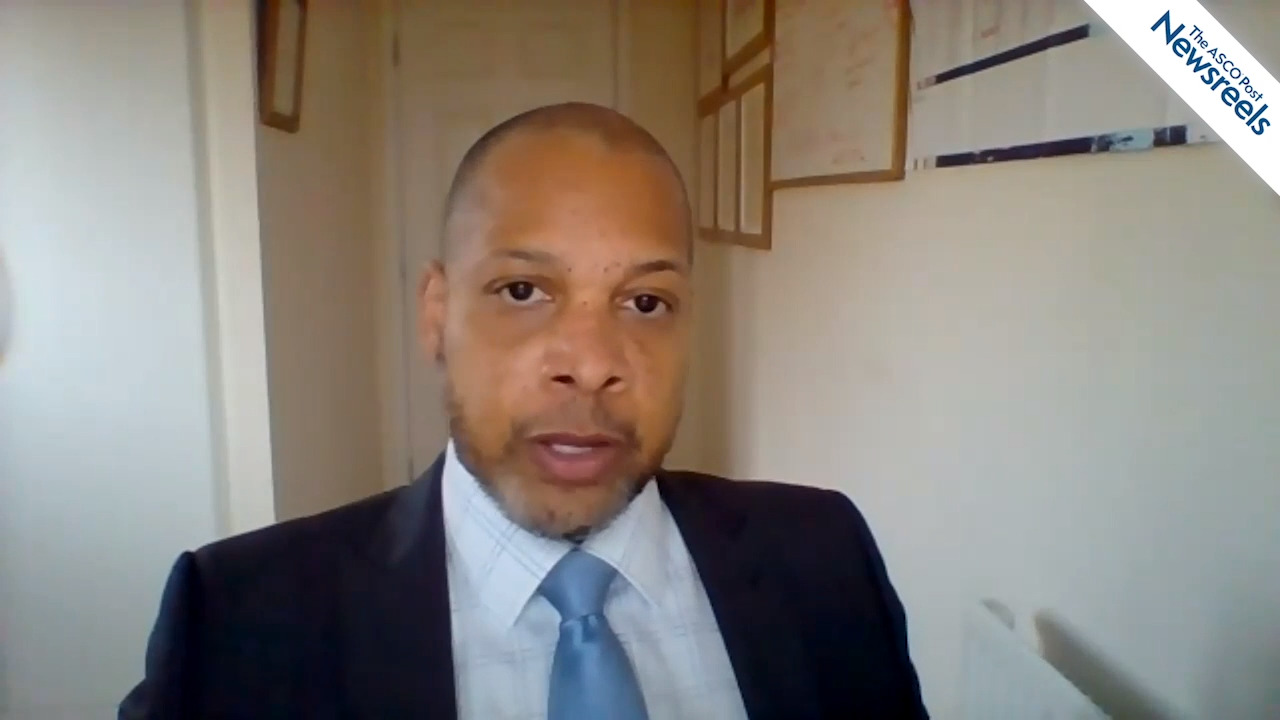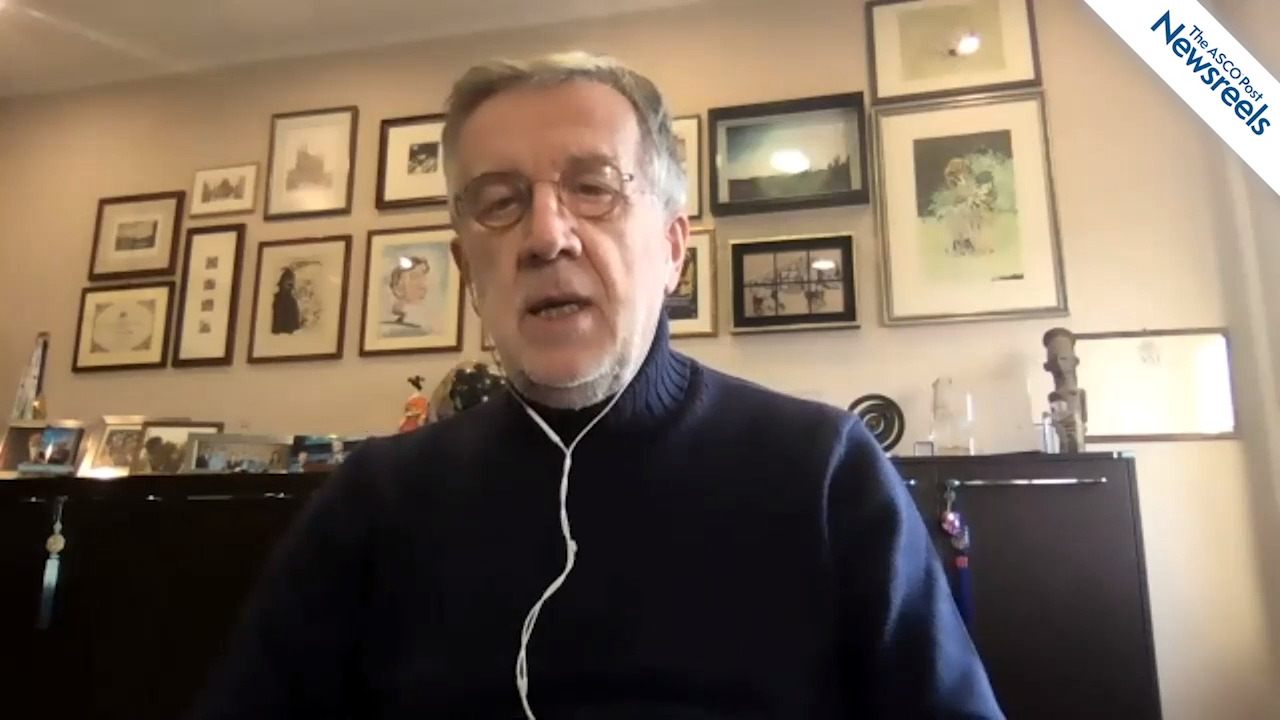IASLC 2020 World Conference on Lung Cancer in Singapore
Expert Point of View: Gillianne G.Y. Lai, MBBS
Gillianne G.Y. Lai, MBBS, of the National Cancer Centre, Singapore, discussed the presentations on novel agents for exon 20 insertion mutations in non–small cell lung cancer (NSCLC), which account for...
Lung Cancers With Rare EGFR Mutations Being Tackled by Novel Agents
Next-generation inhibitors of epidermal growth factor receptor (EGFR) exon 20 insertion mutations showed promise in patients with advanced non–small cell lung cancer (NSCLC) in early-phase trials pres...
Next Up in NSCLC: Antibody-Drug Conjugates
Antibody-drug conjugates directed against HER2, HER3, and trophoblast cell-surface antigen 2 (TROP2) are showing encouraging antitumor activity in advanced non–small cell lung cancer (NSCLC), accordi...
ITACA Trial: No Survival Benefit for Tailoring Adjuvant Chemotherapy in NSCLC
Tailoring adjuvant chemotherapy based on the expression of two molecular markers did not lead to a survival advantage in patients with completely resected stage II to III non–small cell lung cancer (N...
Expert Point of View: Roy S. Herbst, MD, PhD, FACP, FASCO, and Shinichi Toyooka, MD
The ASCO Post reached out to Roy S. Herbst, MD, PhD, FACP, FASCO, Chief of Medical Oncology and Associate Cancer Center Director for Translational Research at Yale Cancer Center and Smilow Cancer Hosp...
Neoadjuvant Atezolizumab in Lung Cancer: LCMC3 Trial Meets Primary Endpoint
Neoadjuvant treatment with single-agent atezolizumab in patients with stage IB to IIIB lung cancer resulted in a major pathologic response rate of 21% and a pathologic complete response rate of 7%, in...
Expert Point of View: Rina Hui, MBBS, PhD, and Melina Marmarelis, MD
“It has been a long time coming to see a positive randomized phase III study with a checkpoint inhibitor in relapsed mesothelioma,” said the study’s invited discussant, Rina Hui, MBBS, PhD, Clinical P...
CONFIRM Trial Reports Improvement in Survival With Nivolumab in Relapsed Malignant Mesothelioma
For the first time, a treatment has been shown to improve overall survival in heavily pretreated patients with relapsed malignant mesothelioma. In the phase III CONFIRM trial, single-agent nivolumab l...
Fred R. Hirsch, MD, PhD, on Searching for Therapeutic Strategies for Patients With Lung Cancer and COVID-19 Infection
Fred R. Hirsch, MD, PhD, of Mount Sinai Medical Center, invites his colleagues to enroll their patients in a large prospective study, for which he serves as Principal Investigator. The study is search...
Hossein Borghaei, DO, on Bispecific T-Cell–Engager Immune Therapy for Small Cell Lung Cancer
Hossein Borghaei, DO, of Fox Chase Cancer Center, discusses phase I results from a study of AMG 757, an experimental bispecific T-cell–engager (BiTE) immune therapy aimed at the DLL3 molecular target ...
KEYNOTE-598: No Improvement With Addition of Ipilimumab to Pembrolizumab in NSCLC
In the phase III KEYNOTE-598 study, the addition of ipilimumab to pembrolizumab increased toxicity without boosting efficacy as first-line therapy for metastatic non–small cell lung cancer (NSCLC) in ...
Phase II CodeBreak 100 Validates Benefit of KRAS Inhibitor Sotorasib in Advanced Lung Cancer
The registrational phase II CodeBreak 100 trial has validated the power of KRAS inhibition with sotorasib (AMG 510) in advanced non–small cell lung cancer (NSCLC).1 In a follow-up to the groundbreaki...
Roy S. Herbst, MD, PhD, on LUNG-MAP, Circulating Tumor DNA, and Tissue Molecular Analysis
Roy S. Herbst, MD, PhD, of Yale University, discusses results from the LUNG-MAP Master Protocol, which support the planned use of circulating tumor DNA for enrollment onto LUNG-MAP substudies, with a ...
Martin Reck, MD, PhD, on SCLC: Maintenance Therapy for Patients With Extensive-Stage Disease
Martin Reck, MD, PhD, of LungenClinic, discusses results from the IMpower133 study of carboplatin plus etoposide with or without atezolizumab in patients with untreated extensive-stage small cell lung...
Martin Reck, MD, PhD, on NSCLC: Pembrolizumab, Platinum Chemotherapy, and Radiotherapy in Advanced Disease
Martin Reck, MD, PhD, of the LungenClinic, discusses the results from KEYNOTE-799, which explored a new strategy to increase the intensity of treatment in patients with unresectable, locally advanced,...
Jill Feldman: A Determined Cancer Survivor Shares Her Story of a Family Devastated by Lung Cancer
Jill Feldman, a patient advocate who has lost five family members to lung cancer and is herself a 12-year cancer survivor living with EGFR-positive disease, describes her family history of cancer, how...
Luis M. Montuenga, PhD, on Noninvasive Biomarkers in Lung Cancer Screening
Luis M. Montuenga, PhD, of the University of Navarra, discusses the potential contributions of biomarkers, promising biomarker panels being tested and published, the need to standardize biospecimen co...
Bruce E. Johnson, MD, on Evolving Challenges in Lung Cancer Drug Development
Bruce E. Johnson, MD, of Dana-Farber Cancer Institute, offers his expert perspective on single-arm drug approvals for targeted agents between 2016 and 2020, the need for biomarker testing, and the soc...
Roy S. Herbst, MD, PhD, on NSCLC: Osimertinib and Patient-Reported Outcomes
Roy S. Herbst, MD, PhD, of Yale University, discusses two key abstracts from the ADAURA trial: the use of osimertinib as adjuvant therapy for resected EGFR-mutated non–small cell lung cancer; and pati...
Justin F. Gainor, MD, on NSCLC: Study Results on Nivolumab vs Ipilimumab, Bemcentinib Plus Pembrolizumab
Justin F. Gainor, MD, of Massachusetts General Hospital, discusses two key phase II studies on non–small cell lung cancer: nivolumab vs nivolumab plus ipilimumab in EGFR-mutant disease and the oral se...
Martin Reck, MD, PhD, on NSCLC: Pembrolizumab Plus Ipilimumab in First-Line Treatment
Martin Reck, MD, PhD, of the LungenClinic, discusses findings of the KEYNOTE-598 study, which showed that pembrolizumab plus ipilimumab was more toxic and offered no more benefit in terms of efficacy ...
Jill Feldman on Diversifying the Criteria for Inclusion in Clinical Trials
Jill Feldman, a patient advocate and lung cancer survivor, discusses the current challenges and potential solutions to including more people of color and those in underserved communities in clinical t...
Fred R. Hirsch, MD, PhD, on Lung Cancer: Survival and Tumor Mutation Burden
Fred R. Hirsch, MD, PhD, of Mount Sinai Medical Center, discusses Lung-MAP studies in which a higher tumor mutation burden determined by next-generation sequencing was linked to overall and progressio...
HIC Assays May Aid in Predicting Response to Immunotherapy Among Patients With NSCLC
Using a host immune classifier (HIC) test for patients with non–small cell lung cancer (NSCLC) may provide better predictors of treatment response and improve outcomes, according to research presented...
Prasad S. Adusumilli, MD, on Cell Therapy for Solid Tumors
Prasad S. Adusumilli, MD, of Memorial Sloan Kettering Cancer Center, discusses ongoing CAR T-cell therapy clinical trials for solid tumors, the key determinants of success for developing this treatmen...
Germline Whole-Exome Sequencing Reveals the Potential Role of Hereditary Predisposition and Therapeutic Implications in SCLC
A study presented by Nobuyuki Takahashi, MD, of the Center for Cancer Research at the National Cancer Institute, at the International Association for the Study of Lung Cancer (IASLC) 2020 World Confer...
Patient-Reported Outcomes From the CROWN Trial: First-Line Lorlatinib vs Crizotinib for ALK-Positive NSCLC
Patient-reported outcomes from the phase III CROWN study showed that time to treatment deterioration in chest pain, dyspnea, and cough was comparable between those who received lorlatinib and patients...
Silvia Novello, MD, PhD, on NSCLC: Pharmacogenomics-Driven vs Standard Adjuvant Chemotherapy
Silvia Novello, MD, PhD, of the University of Turin, discusses phase III results from the ITACA trial, which explored the notion of improving survival by customizing treatment and reducing toxicities...
Taiwanese TALENT Study Supports Effectiveness of Low-Dose CT for Lung Cancer in Certain Populations
A study presented by researchers with the Ministry of Health and Welfare in Taiwan confirmed low-dose computed tomography (CT) screening may be feasible in a predefined, never-smoking, high-risk popul...
Two ADAURA Analyses Support the Use of Osimertinib in Patients With Surgically Resected NSCLC
Two presentations based on data from the ADAURA clinical trial advanced previous research that demonstrated improved disease-fee survival outcomes for patients with surgically resected non–small cell ...
Dean Fennell, FRCP, PhD, on Mesothelioma: Nivolumab vs Placebo in Relapsed Disease
Dean Fennell, FRCP, PhD, of the University of Leicester, discusses phase III results from the CONFIRM trial, which sought a standard immunotherapy treatment to improve overall survival for patients wi...
WCLC Press Briefing Focuses on the Connection Between Lung Cancer and COVID-19
On February 27, 2020, the Journal of Thoracic Oncology published a case study that described two patients from Wuhan, China, who had recently underwent lung lobectomies for adenocarcinoma and were ret...
Nivolumab Monotherapy Improves Survival in Patients With Relapsed Malignant Mesothelioma
In patients with relapsed malignant mesothelioma, treatment with single-agent nivolumab led to a significant improvement in both overall and progression-free survival in the phase III CONFIRM trial. T...
LCMC3 Trial: Neoadjuvant Atezolizumab for Patients With Stage IB to IIIB Resectable Lung Cancer
Neoadjuvant treatment with single-agent atezolizumab for patients with stage IB to IIIB lung cancer resulted in a major pathologic response rate of 21% and pathologic complete response rate of 7% in t...
Giorgio V. Scagliotti, MD, PhD, on Doubling the Lung Cancer Cure Rate by 2025: A Realistic Goal
Giorgio V. Scagliotti, MD, PhD, of the University of Torino, talks about why he believes that many more patients with lung cancer can be cured within the next 4 years, given decreases in mortality rat...
Featured Presentations at WCLC Focus on Disparities in Patients With Lung Cancer
At a press briefing held by the International Association for the Study of Lung Cancer (IASLC), researchers presented new data that revealed factors relating to race, gender, sexual orientation, and i...
Negative Findings in KEYNOTE-598: Ipilimumab Adds No Benefit to Pembrolizumab as First-Line Therapy for NSCLC With High PD-L1 Expression
In the phase III KEYNOTE-598 study, the addition of ipilimumab to pembrolizumab increased toxicity without boosting efficacy as first-line therapy for metastatic non–small cell lung cancer (NSCLC) in ...
Phase II CodeBreak 100 Validates Early Benefit for KRAS Inhibitor in NSCLC
The phase II CodeBreak 100 trial has validated the power of KRAS inhibition with sotorasib (AMG 510) in patients with advanced non–small cell lung cancer (NSCLC). In a follow-up to phase I data, the p...
